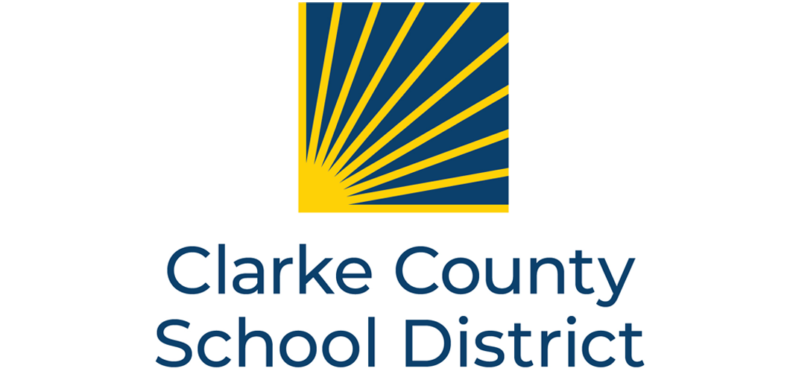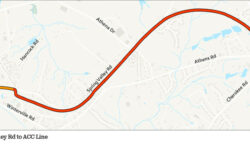The Clarke County School District’s budget could balloon by $30 million next year if the school board approves a recommended tax increase in Superintendent Robbie Hooker’s first year at the helm.
The board cut the property tax rate from 20 to 18.8 mills last year to offset rising property values, but with assessments projected to spike again this year, CCSD staff are recommending raising the property tax rate back to 20 mills, the maximum under state law. Combined with a double-digit rise in property values, raising the millage rate would bring in $128 million, compared to $109 million for FY2023.
Chief Financial Officer Byron Schueneman presented a “baseline budget” of $190 million to the school board at its Apr. 13 meeting that includes step increases for employees but not other new expenses, like a $9.7 million contribution to the state teachers’ health insurance plan.
In the $32 billion budget the state legislature passed last month, it included $2,000 raises for teachers, $1,000 for custodians and 5.1% raises for cafeteria workers, bus drivers and school nurses. CCSD administrators want to extend the $2,000 raises to classified employees (non-teachers) as well as certified employees, and add another $2,000 cost of living increase across the board. In addition, the alternative school Rutland Academy is shutting down, so CCSD will have to spend almost a million dollars to hire four teachers and eight parapros and add trailers, Schueneman said.
Meanwhile, the state’s contribution—known as QBE for Quality Basic Education—is projected to rise by $6 million because of the teacher raises, but it’s actually lower based on the state’s funding formula because CCSD’s enrollment is down. The district had 12,860 students in 2018, but that has fallen to 11,876 this year. Rising property values also hit CCSD’s QBE funding to the tune of $3 million because the state withholds the equivalent of five mills, Schueneman said.
CCSD spokesperson Cyndee Moore told Flagpole that many districts are experiencing an enrollment downturn, which experts attribute to a declining birthrate and the effects of the pandemic, when some parents began homeschooling their children or moved away from Athens into districts that reopened schools for in-person learning sooner. Some families have also left the county in search of jobs or more affordable housing, Moore said.
$78 million from the state, $128 million in property taxes and $11 million in other revenue equals a budget of up to $219 million. With all of the new spending listed above, CCSD would have about $7 million left over—and possibly more, depending on how high property values end up rising.
“We can comfortably build our budget around a 10% increase in our tax digest,” Shueneman told the board. “It could potentially be more and likely will be more than 10%.”
The board will hold three work sessions to discuss the budget, then two public input sessions on the budget and three state-mandated public hearings on the millage rate before giving its final approval in June.
“Last year we had a challenging time getting the board all together,” Schueneman said. “I encourage you to take full advantage of these meetings and let Dr. Hooker know what your opinions are, what you’d like to see increased and what you’d like to see decreased.”
Last year, the board approved the budget, but then deadlocked on the millage rate needed to fund it. Some wanted a smaller cut and others a bigger one, but either way, it would have unbalanced the budget. Board members found themselves in the predicament because they did not discuss their views on the millage rate beforehand.
The award-winning CFO will not be here to guide the board through the budget process this time. Schueneman has taken a job at the much larger DeKalb County School District.
The board also voted 5–3 to sell a house the district owns on Hill Street for $300,000 to Jerry Martin and Krista Slater, who own several local bars and restaurants and plan to use it as their residence. Board President LaKeisha Gantt and members Mumbi Anderson and Claudia Butts did not explain why they voted against the sale.
In another 5–3 vote, the board approved a new policy that allows school administrators to take away recess as a punishment only under rare circumstances, such as the safety of other students. The board initially deadlocked 4–4 on member Tim Denson’s motion to hold the policy for another month to allow for more public comment. Anderson, Butts, Heidi Hensley, Nicole Hull and Mark Evans voted to approve the policy.
Like what you just read? Support Flagpole by making a donation today. Every dollar you give helps fund our ongoing mission to provide Athens with quality, independent journalism.









